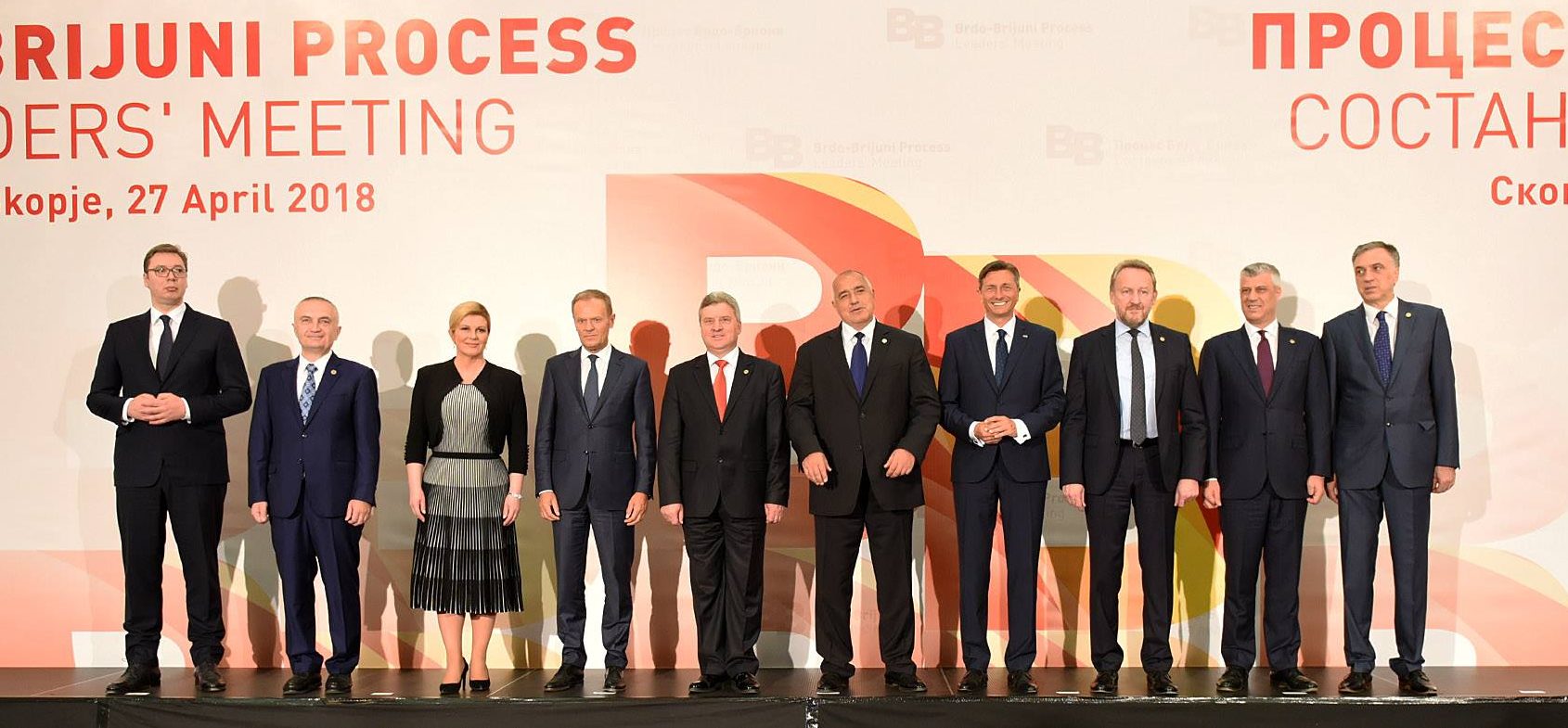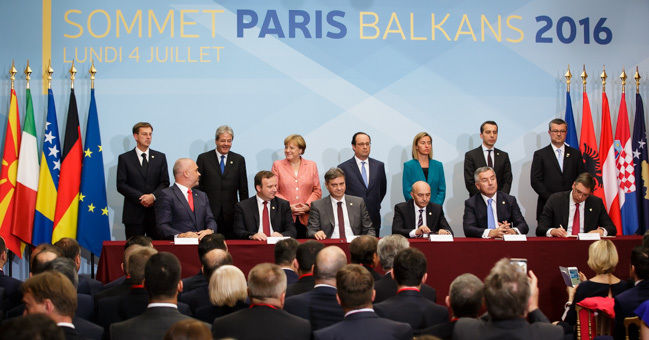Regional Representation and Cooperation
Kosovo and Serbia reached the Agreement on Regional Representation and Cooperation on 24 February 2012.
The agreement is generally referred to as ‘the footnote agreement’.
This because Kosovo and Serbia have agreed that under the regional representation framework Kosovo is represented as just “Kosovo” and is accompanied by an asterisk. The footnote following this asterisk reads: “This designation is without prejudice to the positions on status, in line with United Nations Security Council Resolution 1244 and the International Court of Justice Opinion on the Kosovo declaration of independence”.

Today, Kosovo is recognized by 116 out of 193 countries of the world, which is why the country is challenged with problems of representation and cooperation in the international arena. If we focus on our continent only, five member states of the European Union (Slovakia, Spain, Greece, Cyprus and Romania) and two regional countries (Serbia and Bosnia and Herzegovina) do not recognize Kosovo as an independent country; hindering this way its membership in regional organizations along with the participation in various seminars, meetings or conferences.
In order to have Kosovo to represent itself and discuss its name for the matters that concern the country, primarily in relation to regional countries, parties reached the Agreement on Regional Representation and Cooperation.
This agreement:
- Granted Kosovo the right to participate on its own account and to speak for itself in all regional meetings (while before such representation was conducted by UNMIK);
- And, granted its representatives the right to initiate and/or sign the new agreements (UNMIK representatives were still invited as observers to the meetings for the agreements for which UNMIK is a signatory).
The agreement, however, encourages the hosts of the meetings to avoid displaying national symbols except for their own and EU ones but does not further clarify the use of footnote.
This has created many controversies, especially within Kosovo for its status-neutral nature.
Yet, it enabled Kosovo representatives to sit and discuss with the representatives of other regional countries at regional meetings and initiatives such as Brdo-Brioni Process, Regional Cooperation Council (RCC), The Migration, Asylum, Refugee Regional Initiative (MARRI), South-East Europe Cooperation Process (SEECP), Parliamentary Assembly and many more.
The agreement eased EU’s path to launch initiatives that for the first time involve Kosovo, like the Berlin Process; which brought Serbia and Kosovo to discuss joint projects and programs, such as Niš-Pristina highway, or to participate jointly in RYCO.
Prior to the agreement, Kosovo could not participate or join regional organizations or meetings because of Serbia and Bosnia and Herzegovina. Until then, agreements have been signed by UNMIK on behalf of Kosovo (CEFTA, Energy Community, southeast Europe Transport Observatory and European Common Aviation Area).
In principle, the agreement was destined to help Kosovo’s participation in regional organizations and meetings, but somehow helped in the international dimension too.
- Kosovo became a member or observer on over 30 organizations; regional and international ones.
- Although the agreement was directly not linked to the sports organizations, when Kosovo joined FIFA, Kosovo National Team even played the first matches with the asterisk on their jerseys.
- And with a footnote, Kosovo signed the first contractual agreement with European Union, Stabilization and Association Agreement (signed on 27 October 2015); which marks Kosovo’s first concrete step towards the European Union.
Besides the progress, obstacles remain. In some regional meetings, Serbia lobbies against Kosovo’s membership (for instance Serbia lobbied against Kosovo’s membership in UNESCO and INTERPOL); Kosovo is not invited or is invited but represented without a flag; sometimes the representatives of Kosovo do not participate because of the footnote placed on their name tags, while other times Serbian representatives boycott forums because of Kosovo’s presence. In some cases, Serbia blocks Kosovo’s membership or participation in the regional meetings and initiatives through Bosnia and Herzegovina.




